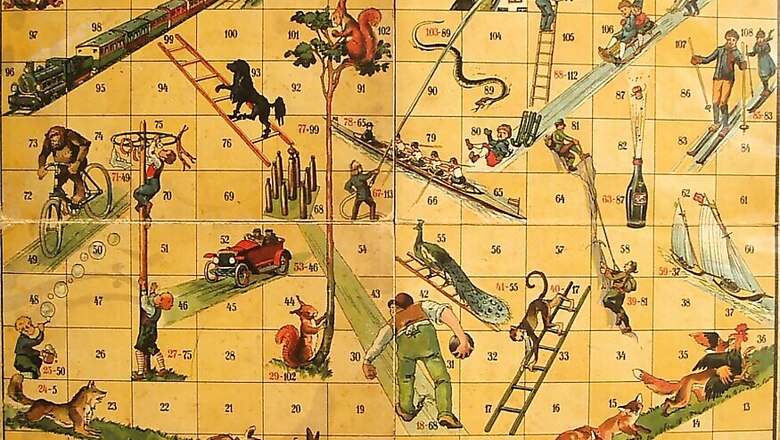
views
New Delhi: India is famous for giving the world games like Chess, Ludo and Snakes and Ladders, but other games like ‘Senet’ and ‘Game of Twenty’, which were historically claimed to be from ancient Egyptian civilisation, might have Indian origins.
A Kolkata-based gaming company, Khol Khel, during a presentation at the Indira Gandhi National Center for Arts (IGNCA) further went on to claim that the popular board game Monopoly might also be connected to India.
The gaming company is an initiative by IT consultant Amal Gopal Surekha, who laid down mats, dice and cowry shells during the talks and narrated the story of how the rolling dice changed forms according to civilisation ethos.
Talking to News18, Surekha said, “Although I am an IT consultant. My passion lies in spreading awareness about India’s gaming tradition. What is identity without heritage? If we have to understand who we are, we have to understand our roots and our past.”
It is known that Snakes and Ladders came from an ancient Indian game called Buddhi Yoga, Ludo came from Pachisi and Chess is a derivative of Chaturanga. Surekha, during the presentation, added to the list and claimed that two other games, which were said to be from ancient Egypt, also had its echoes in Indian heritage.
“There was a game in ancient India called Yatra and the way it was played shows us how Senet was inspired. The game was about introspection and seeking answers, now it is about race. Similarly, if you look at the Game of Twenty, it has links to tathva (elements) and indriya (senses), the origins of which we find in ancient India,” said the IT consultant.
Surekha further went on to say that the roots of Monopoly, a buying and trading board game, can be found in India.
“Individuals in ancient India used to play a game called Ganj. It was a game of trading and had strong, yet indirect influence on the western board game Monopoly. I don't want to make sweeping statements but I won't dismiss this observation that we did influence the Monopoly game. It moved from us – and cards, assets got into it,” he said.
Talking about the game of Buddhi Yoga, which influenced Snakes and Ladders, Surekha said, “The game initially laid emphasis on our ethos of Yogic paths; when it was played during Mughal times, the mystic Sufi traditions found its way into it. As it reached the western shores, the game focused on their values of punctuality and discipline.”
During his presentation, Surekha had termed Buddhi Yoga as the game that “encapsulates the understanding of creation, its purpose, and the meaning of Life”. He further added that since the games were expected to be known by the people living in that period, the rules were not well documented and he based his study on the material available in Kolkata's Asiatic Society.




















Comments
0 comment